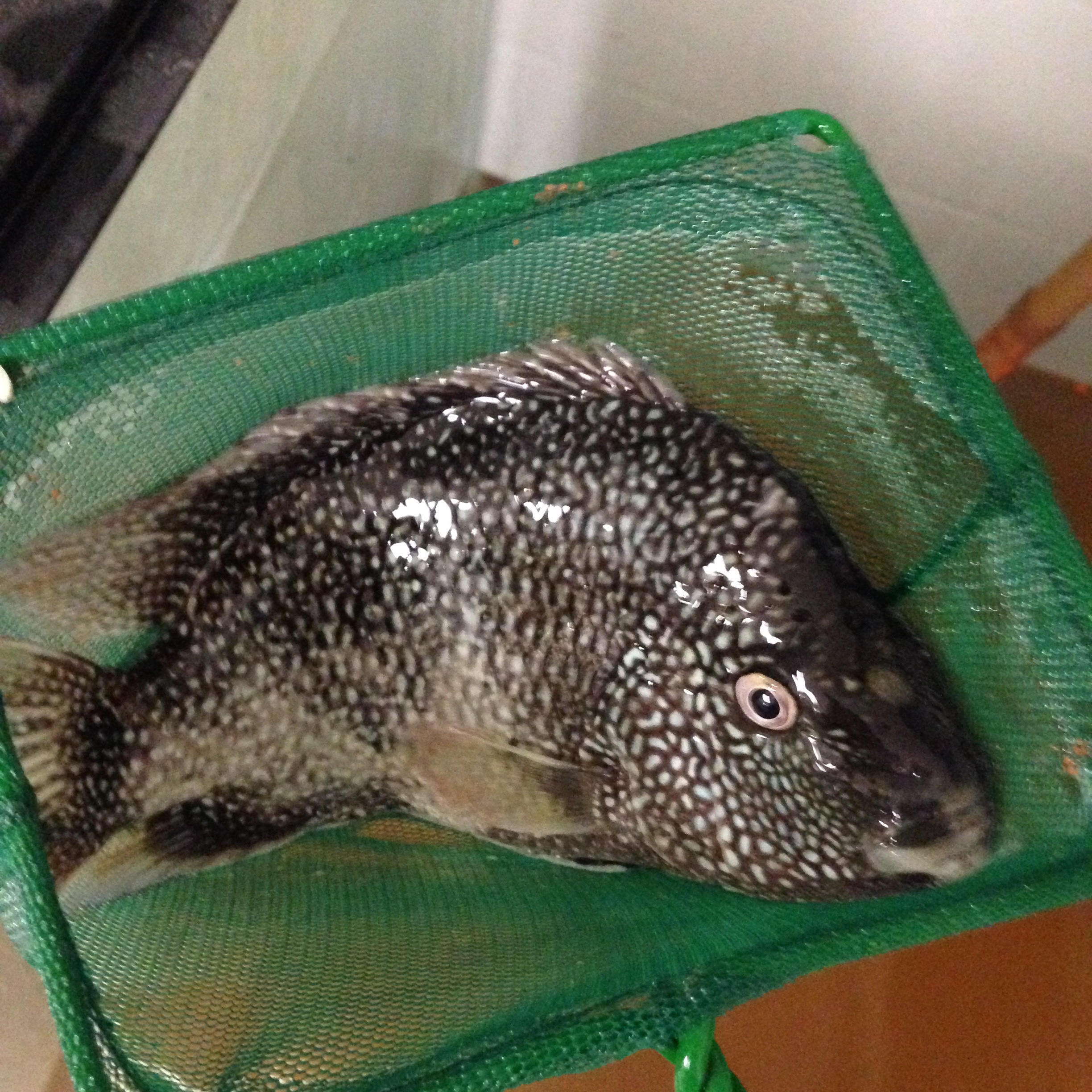I came back to my room the other day and unlocked my door to a terrible smell. It was super strong and not pleasant by any means.
I finally tracked it down and realized something was wrong with my fish tank.
My water was so murky and I had no idea why. I walked over to the tank and realized that the smell was from the tank.
Someone had accidentally(I hope it was an accident) dropped all my food pellets and flakes into my tank. Instead of cleaning it up they left it. For about 36 hours my tank was saturated in about 1000 fish pellets and a container of flakes.
Needless to say this is not ideal for fish survival.
After getting through some meetings I started to remove the water bucket by bucket. After removing about 50 gallons of water I noticed my big fish died. It was a bummer to say the least.
After spending a great deal of time cleaning the tank and moving the water from the 55 gallon aquarium we were happy to discover that the little fish was still alive.
I learned something important in all of this. Once my anger subsided I started to really think this through.
Students need Deeper Learning. The things we are doing here at BMS are so important. Students need to develop critical thinking, problem solving, collaboration, effective communication, self directed learning, and academic mindset. All of these components are essential. If the student(s) had these elements then my fish is still alive.
By using these elements of deeper learning the student could have used critical thinking to realize that the fish is going to die. Problem solving would have lead them to come up with a solution to keep the fish alive. They could have used communication to talk with an educator and other students to collaborate to solve the mistake. Using their self directed learning and academic mindset would allow them to get the essential tools and resources to clean up the mistake.
In this case a simple net and a bucket would have solved this problem. The pellets float so analyzing the situation to grab a net and scoop all the food out would have been an easy decision.
However, either through fear of admitting they made a mistake or not caring or not having the skill set to think through the dilemma left me with a mess and dead fish.
I have faith that the project based learning, deeper learning framework, and the goals of preparing students with life skills in our building is the right path. Obviously, we have some work to do yet, but next time this happens I know my fish won’t die!


I’d add the words empathy, honesty, and trust. Because by MS age, most know they’re at least wasting food, even if their pre-frontal cortex isn’t helping them realize they’re gonna kill a fish by leaving it in there.
We want them to be empathetic to the life (death) of your fish, or at least empathetic that others might be sad if the big guy dies.
We want them to realize they’ve made a mistake and own up to admitting they need some help figuring out how to fix it.
We want them to trust that you won’t chop their heads off when they tell you about that mistake — which, knowing you, is likely more about a lack of trust at home or with other adults than with interacting with you.
I like your positive presupposition and learnable moment you’ve created here, but two containers of food aren’t an accident. They’re a lapse of reasoning (as you said) compounded by a lack of empathy, honesty, and trust.
Sorry about the fish, man. Keep on with the good fight!
To add to what Ginger said, maybe you could set the expectations that the students will replace the fish, and maybe also supply fish tank maintenance for a given period of time. Even if the perpetrators don’t come forward, other students may step up and act responsibly. Modeling responsible behavior for other students will undoubtedly have a positive effect.